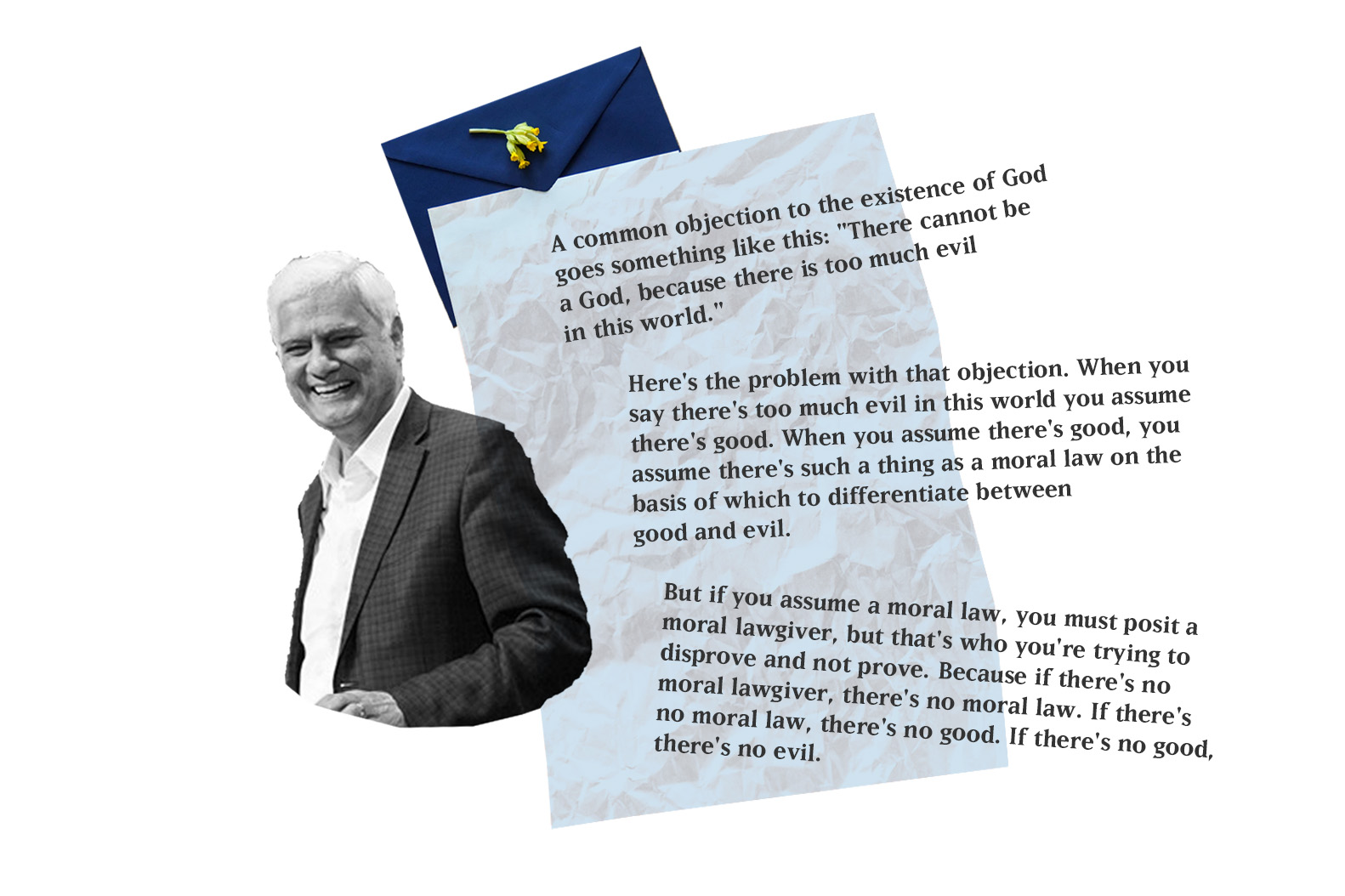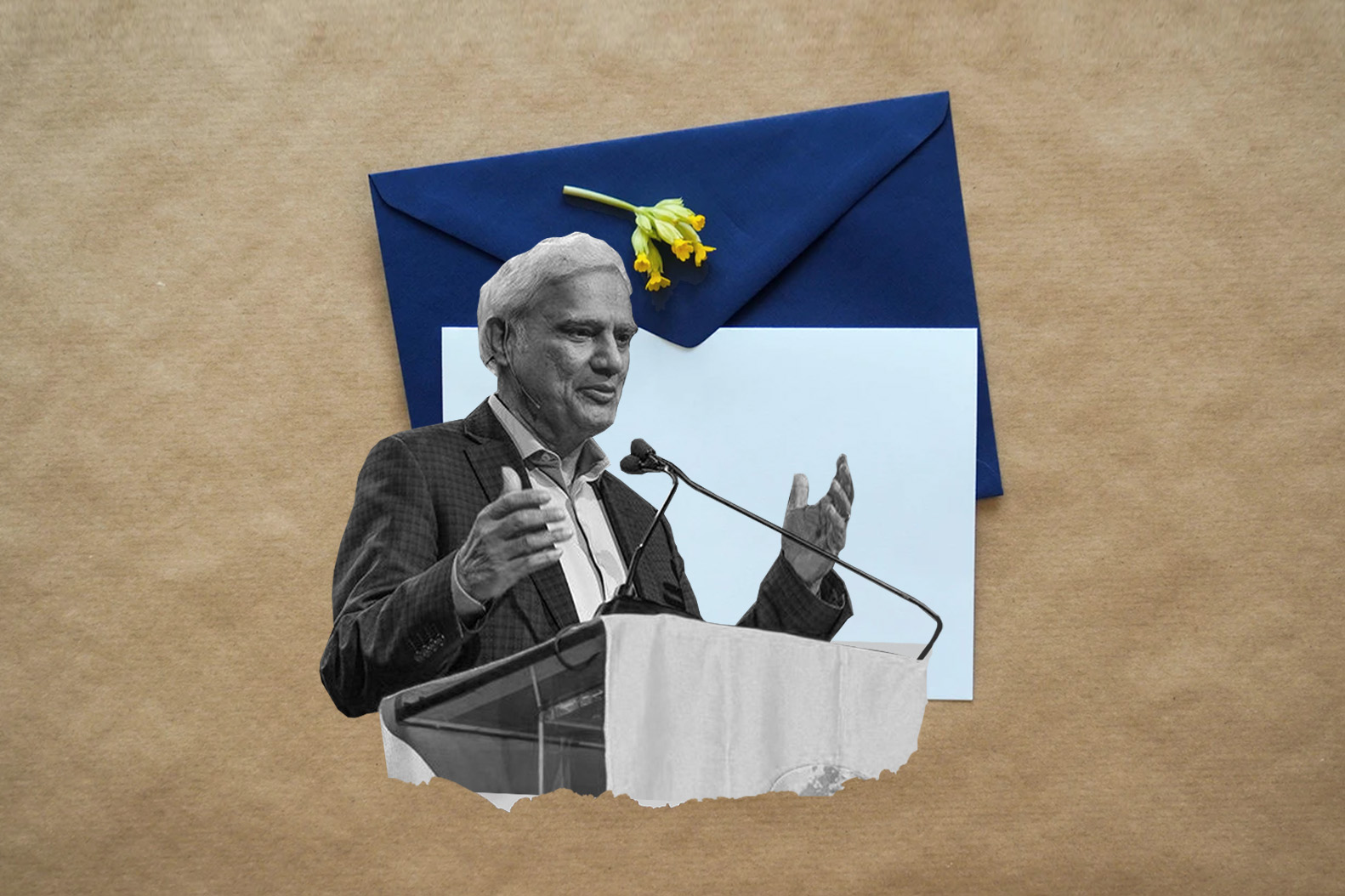Of the Christian spiritual giants that left us recently, none had more impact on my life than Ravi Zacharias.
About a decade ago, I was watching some Christian videos on YouTube when I came across such questions in the comments section:
- Who made God?
- How do you know Jesus is the only God?
- Didn’t science already tell us that the ‘Big Bang’ created the universe, not Jesus?
- If God is good, then why is there evil and suffering? Its existence disproves the existence of God.
God was still utterly real to me in many encounters with Him during church services and in my private prayer and worship sessions.
But these questions (and many more) pricked me and left me unsettled. Because if God is real and Christianity is true, then I thought these questions should be answerable. How can truth not stand up to scrutiny?
So I began my journey to find the answers. I asked many people, but all of their replies revolve around the same idea – not answering the question directly, but suggesting all sorts of approaches.
Let me share with you some of their replies:
- “Let the Holy Spirit convict their hearts in His own time, but meanwhile, keep praying for them.”
- “Why don’t you bring him to church? Let him encounter the presence of God and be loved by the many brothers and sisters in Christ here and all these questions will melt away!”
You get the drift. They’re all well-meaning, loving and warm-hearted Christians that desire to enfold the questioner but they fall short of a convincing answer.
After exhausting my options, I returned to YouTube to find the answers. That’s when I chanced upon Ravi’s videos. The same platform that introduced me to these intellectual objections became the same platform that introduced me to the scholar who would answer them!
For me, Ravi answered this question very powerfully: If God is good, then why is there evil and suffering?

The moment you try to talk about evil and suffering, or right and wrong, you enter into the realm of morality. But where do moral standards come from? Are they universal? Or is morality subjective?
I will refrain from going into the arguments of morality, but you get the drift. To even step into the arena of morality, you first have to concede that there is moral lawgiver. Only then, then we can start debating.
So the starting point is always God. For without God, everything is meaningless and purposeless, rendering the questioner and question itself a virtue-less waste of time.
This means that the question of good and evil serves to prove that there is a God instead of disproving Him.
Okay, so there is a God. But is this God good?
The Bible talks about how God didn’t just leave us in the lurch and condemned us to hell because of our sin – He sent His Son Jesus to bear the punishment for us.
“Very rarely will anyone die for a righteous person, though for a good person someone might possibly dare to die. But God demonstrates his own love for us in this: While we were still sinners, Christ died for us.” (Romans 5:7-8)
Jesus Himself says it in no uncertain terms: “I am the good shepherd. The good shepherd lays down his life for the sheep.” (John 10:11)
The price to pay for our sin would have been death (Romans 6:23), but Jesus paid the price with His own life. Isn’t that a picture of goodness?

The answer to this question was just one of the many astounding truths and concepts that I’ve gleaned from Ravi. From that day on, I watched more of his videos and would go on to amass his books that would fortify my faith.
With Ravi’s great intellect, cogent eloquence, witty rhetoric and a huge following, he could easily belittle his opponents or questioners. Instead, he reached out to them and drew them in with poems, quotes from scientists and historians, and thoughts from philosophers, gently inviting them to think.
Ravi addressed questions sharply, fearlessly and most importantly, lovingly and respectfully.
That, I think, are the two greatest qualities in him that I admire – his humility and his love for the individual. For that, his absence will always weigh heavily on my heart.
Let me end this tribute with another classic quote of Ravi’s.
“Death is either a full stop or a comma. In the Christian worldview, it is a comma. There is for the Christian both the passing of all things and the abiding in Christ’s provision. That’s the reality of Easter.”
Farewell Ravi. Till we meet again. This comma shouldn’t be long.
This article was first published on Jonavan’s blog and is republished with permission.
- Pray for the loved ones that Ravi has left behind.
- Pray for the ministry that Ravi founded, RZIM.
- Pray that more people around the world will come to know of the goodness of God.









